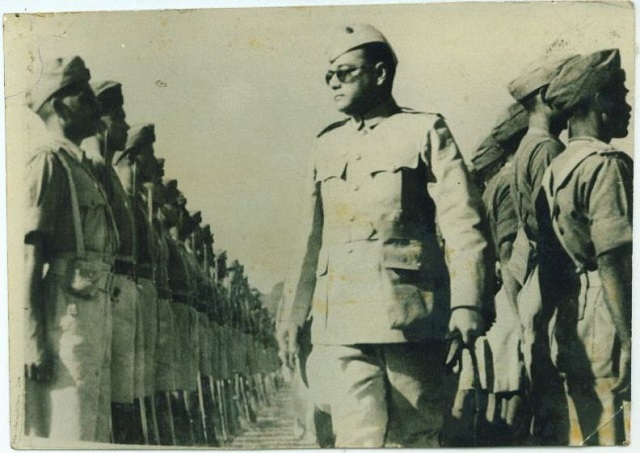The Indian government has decided to celebrate January 23rd as 'Parakram Diwas' every year to commemorate the birth anniversary of Netaji Subhas Chandra Bose and inspire the youth of the country with his spirit.
This year is the 125th Birth Anniversary year of Netaji Subhas Chandra Bose and the government of India has decided to celebrate it in a befitting manner at the national and international level.
The centre has constituted a high-level committee under the chairmanship of Prime Minister Narendra Modi to decide the programmes and to supervise and guide the commemoration.
Objective |
| The centre has decided to celebrate Netaji's birth anniversary on January 23rd every year as Parakram Diwas to inspire people of the country, especially the youth, to act with fortitude when faced with adversity as Netaji did and to infuse in them a spirit of patriotic fervour. |
About Netaji Subhas Chandra Bose
• Subhas Chandra Bose was an Indian nationalist who was popularly known as Netaji Subhas Chandra Bose, whose defiant patriotism made him a hero in India. However, his ways had drawn criticism as he had attempted to help India get freedom from British Raj with the help of Nazi Germany and imperial Japan during World War II.
• The honour of Netaji was conferred upon the freedom fighter in Germany, in early 1942 by the Indian soldiers of the Indische Legion and by the German and Indian officials in the Special Bureau for India in Berlin.
• Bose had followed Jawaharlal Nehru to lead the younger wing of the Indian National Congress. He soon rose to become the Congress President in 1938 and was re-elected in 1939.
• However, soon after that, he was ousted from Congress leadership positions following differences with Mahatma Gandhi and the Congress high command.
• He was subsequently placed under house arrest by the British before escaping from India in 1940.
• He arrived in Germany in April 1941, where the leadership offered unexpected sympathy for the cause of India's independence. Soon, a Free India Legion, comprising Indians captured by Erwin Rommel's Afrika Korps, was formed to aid a possible future German land invasion of India.
• Adolf Hitler, during his only meeting with Bose in late May 1942, suggested the same and offered to arrange for a submarine. Soon with the aid of Germany and Japan, Bose reached Japanese-held Sumatra in May 1943.
• He then revamped the Indian National Army also known as Azad Hind Fauj with Japanese support. The INA was composed of Indian soldiers of the British Indian army who had been captured in the Battle of Singapore.
• Soon, a provisional government of free India, presided by Bose, was formed in the Japanese-occupied Andaman and Nicobar Islands.
• The Indian National Army under the leadership of Netaji Subhas Chandra Bose was an ideal model of diversity by region, religion, gender and ethnicity.
• However, his military effort was short-lived as in late 1944 and early 1945, the British Indian Army devastatingly reversed the Japanese attack on India and almost half the Japanese forces and half the participating INA contingent was killed.
• The remaining members of the INA contingent were driven to surrender with the recapture of Singapore.
• Bose had chosen not to surrender with his forces or with the Japanese and was learned to have escaped to Manchuria.
• He reportedly died during a plane crash in Taiwan. His death in the crash is however contested by Indians who believed that he was alive and would return to gain India's Independence.
Comments
All Comments (0)
Join the conversation